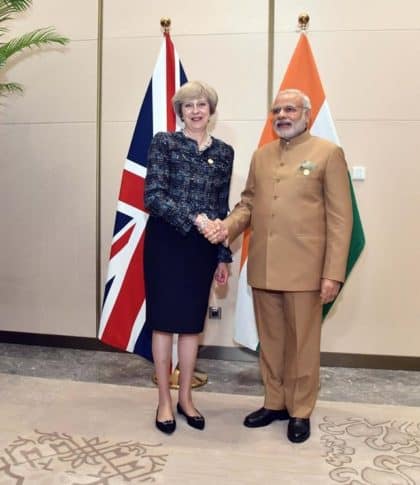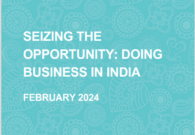Decoding the future of the UK-India relationship
The range of sectors attracting investments is changing and businesses will spread into more regions

Richard Heald – The bilateral engagements between India and the UK this week are taking place at a time of great change for both the nations. Prime Minister Narendra Modi’s reforms are transforming India, and Brexit enables the UK to set its own trade and investment agenda. At the same time, technology is changing the nature of the opportunities UK and Indian businesses see.
These changes offer an exciting opportunity to transform the UK-India relationship, and it is one that both Prime Ministers must grasp. Naturally, there will be talk about a UK-India Free Trade Agreement, but a deal will not happen anytime soon. And business must not wait for one. There are deals to be done now.
Arguably, there are more important and immediate things that the governments can do to spur bilateral activity than negotiate a trade deal. For instance, a continued focus on the ease of doing business in India will make a big difference. As will tackling non-tariff barriers through the Governments’ Joint Trade Review, and by extending “accelerator” programmes supporting SMEs, such as the Access India Programme which is backed by the Indian Government and the Urban Gateway which is supported by the UK Government.
Businesses from both countries are big investors in each other’s country. Since 2000, the UK has been the largest G20 investor in India, investing £17.5 billion. British companies now employ a staggering 800,000 people in India, representing one in 20 jobs in India’s organised private sector. There is a similarly positive story on Indian investment into the UK. There are around 800 Indian businesses in the UK, employing 110,000, and every year India is in the top 5 countries investing in the UK.
While bilateral investment is growing, it is not just more of the same. The volume and nature of investment has changed. More UK businesses are investing in India — the number of UK businesses in India has more than doubled since 2000. And the range of sectors attracting UK investment has shifted. Advanced manufacturing, financial and professional services have remained top for decades, but the 21st century has seen strong growth in sectors such as education, retail, consumer goods, life sciences, healthcare, and infrastructure.
This investment relationship is generating ever-more successful R&D partnerships across a wide range of sectors. The success is down to the interplay between governments, businesses, and universities/research institutions.
For example, the £50 million Newton Bhabha Fund co-created by the UK and Indian governments is stimulating UK and Indian scientific research into finding solutions to the challenges facing India’s economic development and social welfare. And there are industry-academia partnerships, for example, Tata Motors-owned JLR and the Warwick Manufacturing group at Warwick University are opening the largest automotive R&D facility in Europe this year.
Industry-industry pacts
Beyond these industry-academia examples, there are industry-industry partnership too. These include a partnership between UK insurance major, Bupa, and Indian firms Practo and 1mg. Together, they have created an easy to access and customised holistic healthcare plan that brings health cover for Indians who currently can’t access insurance and, therefore, quality healthcare.
Another example that utilises the power of emerging technologies is the Rolls Royce-TCS partnership to explore the applications of IoT in expanding Rolls Royce’s manufacturing. This is the exciting place where Make in India meets Digital India. Where India meets the UK.
These innovation-focussed partnerships are just the tip of an expanding iceberg. As the UK and India forge more manufacturing and technology partnerships, we will see changes in where investments are made and partnerships formed. There will be a greater geographical spread, with more UK businesses going into cities like Pune, Ahmedabad, Indore and Coimbatore to connect with their strong, well-developed industrial clusters.
We will also see a change in Indian investment into the UK, with Indian companies plugging into the UK’s manufacturing regions, particularly across the midlands, and in cities like Sheffield and Manchester.
So, while it is right that Theresa May and Narendra Modi should celebrate the scale and holistic nature of the existing bilateral relationship, it is also right that they focus on how that relationship needs to evolve. New technologies should be at the heart of this evolution.
Original article published by The Hindu: Business Line can be read here.







